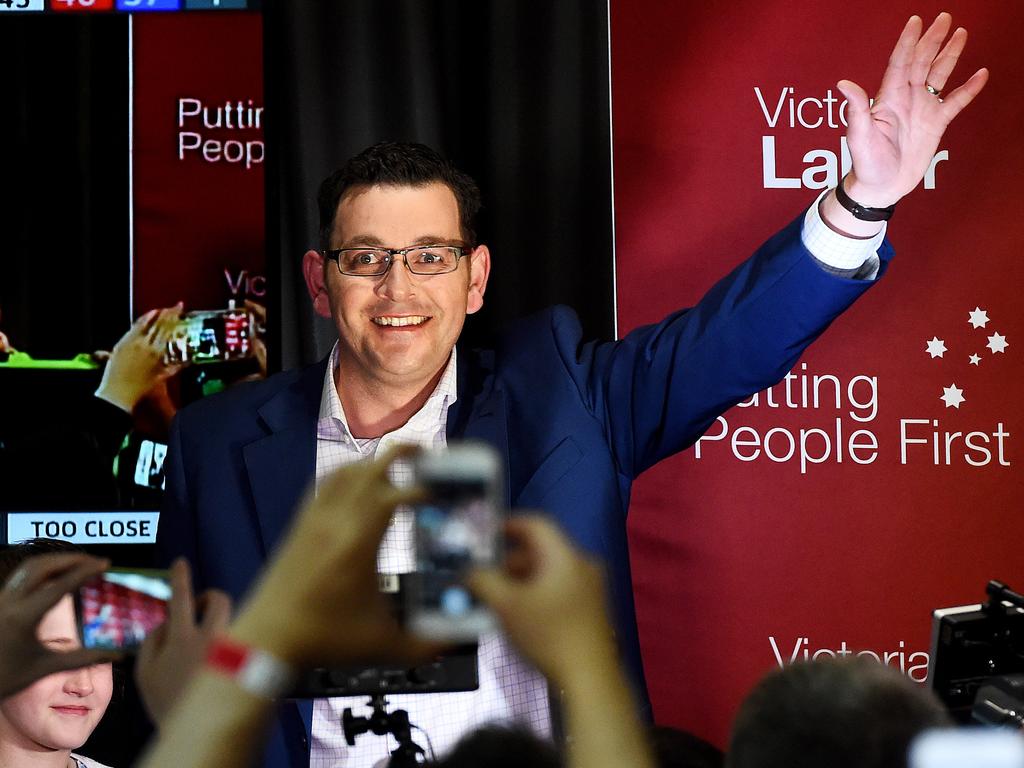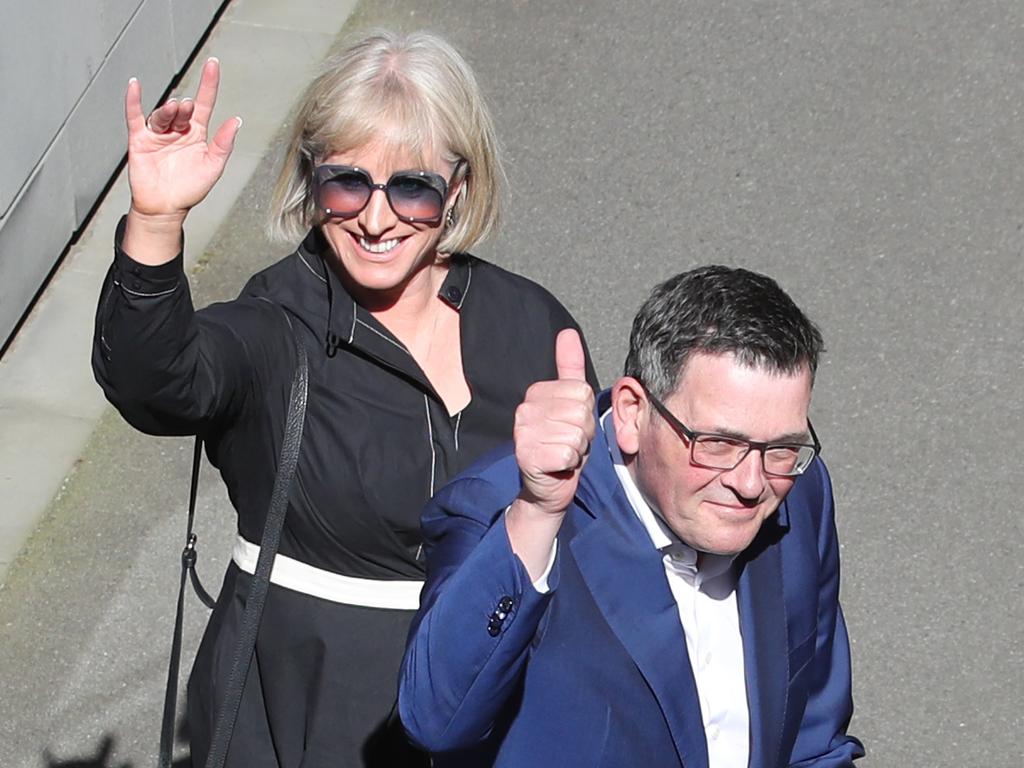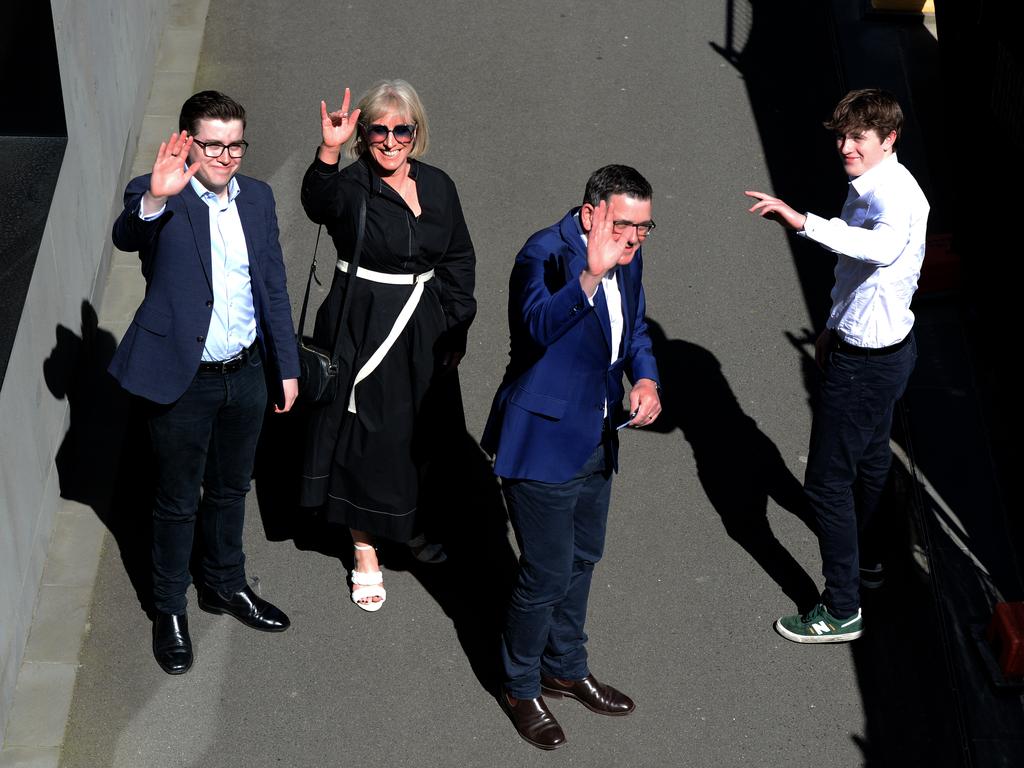No escaping Dan’s brutal reign of madness


Some public lives don’t age well and Andrews’ certainly shouldn’t given that he has left his state with crippling debt, degraded public services, a social fabric that has frayed under his woke agenda and bitter memories of the free world’s most savage pandemic lockdowns.
There’s no doubt Andrews dictated Victoria for nine years. He overawed and demoralised the opposition; bullied and intimidated his own party colleagues; and stacked and manipulated the public service.
He was always much better at politics than at government. He might have been one of the most brutally effective political players I’ve ever observed close up, but that says more about the weakness of his opposition, and the low calibre of the Victorian establishment, than the quality of his leadership or his government.
Under Andrews, Victoria’s debt has blown out massively, making it the most indebted state in the country, exceeding the combined debt of all the other east coast states.
Taxes have gone up. Projects are billions over budget and years behind schedule. The state is in the grip of a housing crisis and small business is still on its knees, never having recovered from the premier’s world-record-breaking lockdowns. Post-Covid, suicide is a scourge, the state’s big hospitals are routinely on bypass, ambulances rarely turn up on time and sometimes don’t turn up at all, costing lives.
Andrews ran the country’s most left-wing government ever. He sponsored the so-called Safe Schools social engineering program, promoting gender fluidity in the classroom.
He put biological men into women’s prisons; criminalised trying to persuade teenagers not to alter their biological sex; created an Indigenous treaty commission that Victorians never voted for; turned some doctors from healers to killers via medically assisted suicide; introduced the drug injecting room he said he never would; and has all but cancelled Australia Day in the state.
Under his watch, Melburnians are subjected to home invasions, violent assaults, car-jackings and youth delinquency on a scale not far short of Johannesburg but never previously experienced here.
And yes, credit where it’s due, he did remove dozens of level crossings, giving many motorists some of their days back, but at a cost vastly exceeding the $6bn raised to pay for them from privatising the Port of Melbourne.
But he wasted the $1bn already spent by his predecessor to start the build by cancelling the much-needed East-West Link to fix the traffic gridlock to the north of the Melbourne CBD.

Yet the Teflon premier was untouchable, despite the numerous inquiries into allegations of corruption, or abuse of power, that always concluded that whoever was to blame, it was never the premier, without whose say-so nothing ever happened in this state. He had an extraordinary ability to brazen away problems that should have sunk him, such as claiming at the start of the pandemic that he’d spend $4bn to create thousands of extra ventilator beds and then denying he’d ever made the commitment when they never showed up. Or his rejection of military support to run hotel quarantine, instead hiring a battery of dodgy private security guards, a decision that ultimately cost 801 lives. A decision, let’s not forget, that in a whitewash inquiry no MP or public servant under oath could remember anyone making.
Deep down, outside of an ever-diminishing “I stand with Dan” fan club, I think most Victorians knew they were being had, hence the widespread jubilation at the sudden departure of a premier who had just won an increased majority against a feeble opposition, vowing to serve a full four years.
Perhaps his ultimate act of cynicism was the pre-election bid last year for the Commonwealth Games, promising to host them in regional centres at extravagant cost, only to cancel them once the pork-barrelling had served its purpose.
In my view, his decision to leave this week comes after extracting a commitment from the Prime Minister that there would be no powerful Covid royal commission and that even the weak substitute inquiry would not look into the actions of state governments.


He might be one of Victoria longest serving premiers but his legacy will be a Covid nightmare that most Victorians would prefer to forget, dominated by the world’s longest lockdowns: with curfews, “rings of steel”, playgrounds closed, police brutalising freedom marchers with tear gas and rubber bullets, a still largely empty CBD, and a long tail of untreated illness and mental hurt.
But just because Andrews’ principal bequest to Victorians was the two most miserable years of our lives is not enough to make the Liberals competitive in the next election, due in 2026, without a reset on their side too.
That doesn’t necessarily mean replacing the leader but that’s got to be an option if John Pesutto can’t turn things around.
Still, the events of this week give the Opposition Leader a chance to make the fresh start he needs to be competitive.
The Liberals’ problem, since they lost office in 2014 after only one term, has been not standing for anything much and being more of a weak echo than a strong alternative.
At last year’s election, they mimicked Labor on energy policy; tried to bribe commuters with lower fares, even though public transport has long run at a massive loss; and promised to spend $20bn building new hospitals, even though it’s what happens inside the hospitals that counts.
If they’d had a better infrastructure plan, a better deal for small business, cheaper power for industry, a back-to-basics school curriculum, a bit of pushback on the gender madness, and a way to cut spending and to cut taxes, they sure kept it well hidden.
And as a result a bad government actually increased its majority – because Liberals lose when they run as Labor-lite.

The first task of a party leader is to keep the team together, and this is where Pesutto has failed badly so far. He should have publicly supported his upper house colleague Moira Deeming after the women’s rights rally she’d spoken at was gatecrashed by neo-Nazis. It wasn’t her fault that a bunch of ratbags showed up, and Pesutto was wrong to prematurely accuse her of being linked in any meaningful way to extremists.
Now she’s suing him for defamation, so there’s the looming spectre of the leader and someone who’s still a Liberal, despite being expelled from the parliamentary caucus, slugging it out in court. The party membership is much more inclined to back Deeming on this than Pesutto and there’s white-hot anger at his bid to use party campaign funds to pay his legal costs.
Pesutto needs to prove he has what it takes to be an effective leader by showing a bigger and more magnanimous character.
This week one of the steadiest people in the state partyroom, Bill Tilley, gave his leader some public advice: “A good start (in the Libs’ reset) would be for the leader to apologise to Moira Deeming and to invite her back into the parliamentary party.”
Leadership is character. We Victorians have had too many public figures lately who have turned out to be less than we deserve.







Daniel Andrews totally dominated Victorian politics while he was premier. But the spell broke the instant he announced his departure, as shown by the cheering that erupted from the grand final lunch business crowd at Crown casino that previously had fawned over him.